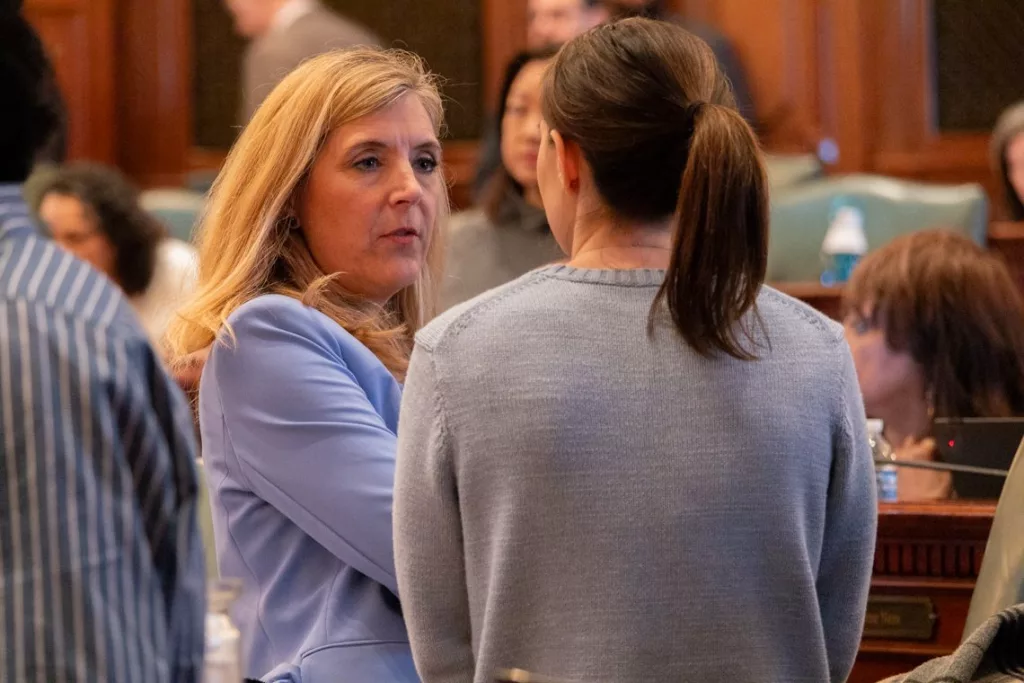
Instead of a coronation we ended up with an election.
How is that a bad thing in a democracy?
It took 15 roll call votes to elect Kevin McCarthy speaker of the House. The political chattering class is calling it a national “embarrassment” and labeled each prolonged vote a “humiliation” for McCarthy.
Well, maybe.
By its nature, democracy is supposed to be messy. It’s often about building coalitions and holding them.
In democracies such as France, Italy, Germany and Israel, multiple rollcalls and succession fights are routine. The U.S. is really the outlier in that regard.
Do I identify with that small group of Republicans who held out? Nope. But they effectively used what votes they had to maximize their power. That’s how politics works.
When I covered the Illinois General Assembly, I saw this strategy time and time again. Then-House Speaker Mike Madigan would negotiate a budget with the governor and the other legislative leaders and a faction of his caucus would threaten to withhold their coalition’s votes – unless they received funding for a particular program or support on a desired initiative.
Other lawmakers would complain about the entire legislature being “held hostage” but inevitably compromise was reached and lawmakers would head home happy. They were engaging in smart politics – using their solidarity to magnify their power.
The same thing was happening with the Freedom Caucus in Washington. With Republicans holding a razor thin majority, they were able to gain an out-sized voice in policymaking.
Here is what U.S. Rep. Mary Miller, R-Oakland, said the Freedom Caucus gained:
- The power to block an omnibus spending bill from the Senate.
- The power to eliminate waste by making direct budget cuts to the federal bureaucracy and spending caps to cut spending.
- A balanced federal budget over the next 10 years.
- A committee to investigate the “weaponization of the federal government,” including the Department of Justice.
- A Southern border security plan.
- The end of COVID mandates and funding for them.
- Requiring 72 hours to read a bill before the vote.
- The power for one member to call a vote for a new speaker.
Some of the concessions made to the caucus may prove to be positive such as a 72-hour waiting period before bills can be voted on within the House. Such a measure may improve transparency and debate.
Other concessions will likely prove problematic. For example, allowing just one disgruntled member of Congress to call for a new vote for speaker has the potential to throw the entire chamber into a state of perpetual chaos.
Then again, such disruptive efforts could easily be thwarted if Republicans and Democrats join to knock them down. That’s a big “if,” but the Freedom Caucus’ gains have the potential to cause more mainstream Republicans and Democrats to work together.
Previously: Scott Reeder: Why it matters when politicians lie
One need only look back in Illinois history to see how that could work. In 1975, state Rep. Bill Redmond was elected speaker of the Illinois House – after 93 rollcalls.
Democrats held the majority but were divided. Chicago Mayor Richard Daley and Gov. Dan Walker were at loggerheads over who to support.
Much as the Republicans in Congress fought it out this month, Democrats in that era of bell-bottom jeans and disco music were unable to reach consensus.
My friend Mike Lawrence, a statehouse reporter at the time, said it came down to a contest between Democrats Clyde Choate, from Anna, and Redmond, from Bensonville. Republicans viewed the matter as a Democratic squabble and steered clear.
But after 93 votes and no winner, a freshman Republican named Lee Daniels stepped forward and voted for Redmond.
“When Daniels said, ‘I vote Redmond,’ the place went up for grabs and my recollection is that the rollcall stopped. I believe the House recessed. … I ran out on the floor right for Daniel’s desk and there were Republicans all around Daniel’s, just giving him the devil and telling him he was all through in the Republican Party.”
Daniels, of course, eventually became leader of the GOP caucus and later served a term as speaker of the House in the 1990s.
As I watched Republicans in Washington this month struggle within a divided caucus to elect a speaker, I kept waiting for a similar act from one of the 212 Democrats. It would have just taken one to step forward and vote to break the impasse.
It would have been an act of bipartisan statesmanship. But it didn’t happen. But it is not too late. The far-right Freedom Caucus will try to bring McCarthy and the chamber to their knees.
Either members of both parties will reach across the aisle and work in a bipartisan manner or we inherit chaos.
The question for members of Congress is: “Do you love your party more than your nation?”
A Galesburg native, Scott Reeder is a staff writer for Illinois Times. He can be reached at: sreeder@illinoistimes.com.






